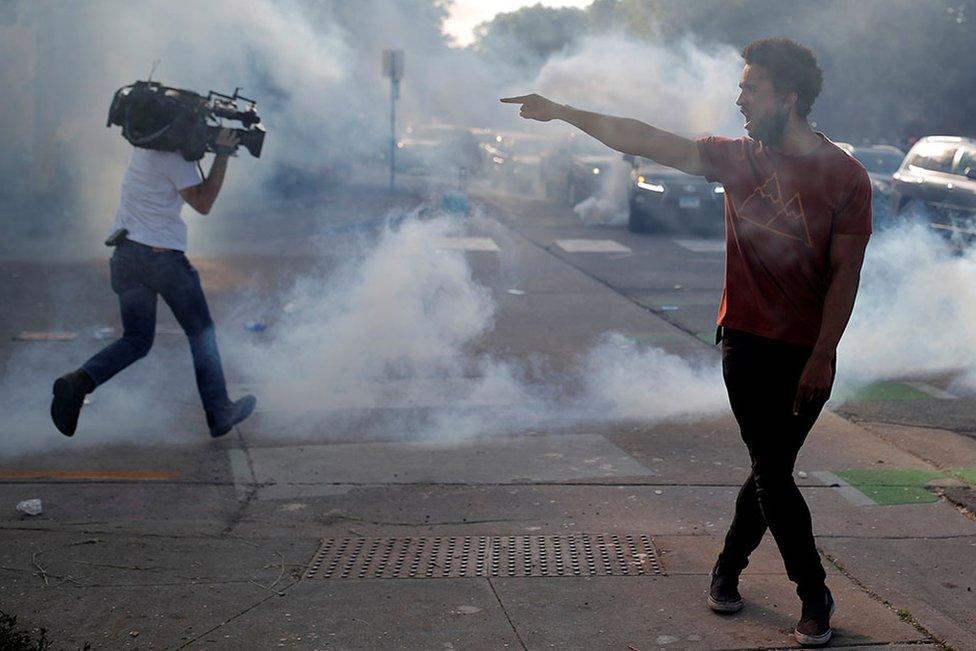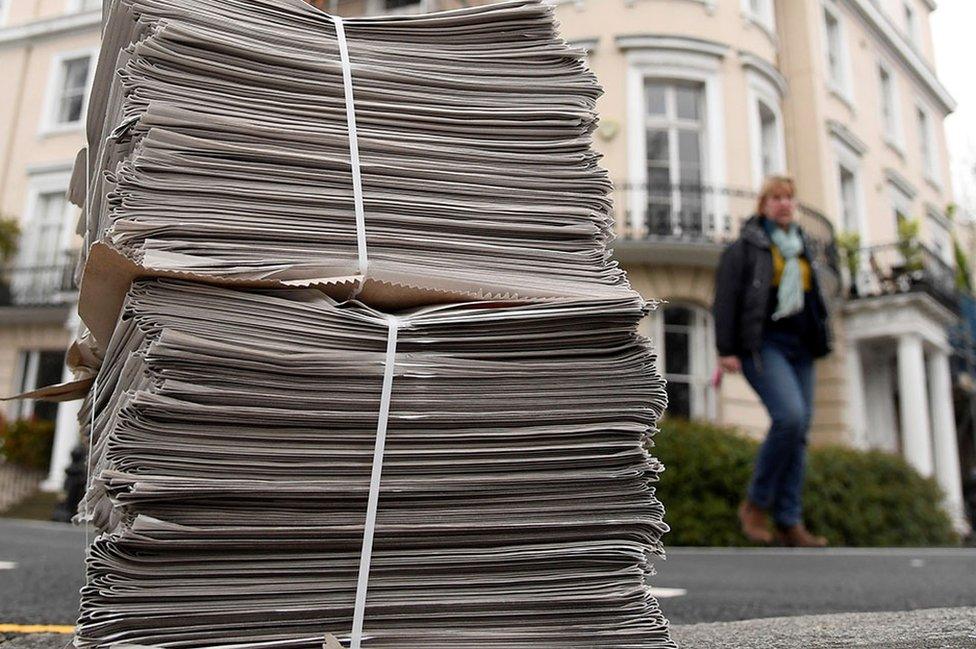Journalists are needed, now more than ever
- Published
For the world's media, 2020 - which always had the feeling of a landmark year - has crystallised the intense duality of our existence.
This is a time of extraordinary opportunity and demand for what journalists do; and also a moment of immense danger, and threats that seem to grow by the hour.
COVID-19 and the death of George Floyd are huge news events, in part because they accentuate the sense that we are living through one of history's hinge moments, on the brink of sudden and epochal change, with the future up for grabs. But then again some of us had that sense back in the distant days of January too.

A protester argues with law enforcement officers as a cameraman runs from tear gas during a demonstration in Minneapolis on 31 May
A rebalancing of global power toward the East, climate change, the dominance of five Californian tech giants, the aftermath of a financial crisis and a populist revolt against elites across the world had made recent years one of history's busiest periods. As the first, rough draft of history, the skill and nous of journalists have rarely been more needed.
A lack of money
And yet the conundrum is that, with so many people not paying for news, funding quality journalism - as opposed to clickbait - in the digital age has proved tough. That was before COVID-19 came along, decimating the distribution models of traditional media such as newspapers, and causing huge retrenchment in the advertising that subsidises much of the industry.

Sales of print newspapers have been have been hit hard by the pandemic
Journalism's financial crisis - the result of the internet turning general daily news into a near-universal commodity - was just one of the crises besetting media. It was made much worse by the flight of advertising money to giant technology platforms who don't pay for content.
The advent of social media, which promised to be a boon for democracy, now imperils it, in many ways. There is the massive proliferation of sickening abuse, trolling and conspiracy theories. There is the hijacking of the attention and priorities of countless reporters, warping their sense of where public sentiment really is. And there is the damaging, seductive power of the urge to be shared and retweeted online, which causes editorial judgement to lapse.
At the same time, of course, it makes a small number of Californians very rich. Just as old media has been impoverished, then, new media has thrived, in part by feasting on the corpses of journalistic institutions that could not survive the digital revolution.
Three functions
It is in this context - of a financial crisis, a truth crisis, a digital culture war and strains on editorial judgement - that the appalling attacks on journalists across the world just this week must be seen. They have been led, of course, by a US President who calls them the enemy of the people. From America to Australia, reporters, producers and camera operators are being silenced, punched or hit with truncheons for trying merely to chronicle what is going on. And this is in supposedly advanced democracies.

A journalist is treated for a head wound in Westminster after protests in London on 3 June
Journalism has three main functions: to inform the citizenry, apply scrutiny to power and, in the broadest sense, to enlighten a culture, through the spread of ideas and ideals. Most journalists are decent, public-spirit folk, neither rich nor famous, who want simply to get at the truth.
Social goods are easily destroyed, but not easily created. Accurate, fair journalism is one such social good, but today journalists across the world seem to be shifting into that category of people that are presumed guilty until proven innocent. We shall miss them if they disappear; and if you want a preview of what life without them would be like, try living in North Korea.
This was originally broadcast as a World Service Radio essay. If you're interested in issues such as these, please follow me on Twitter, external or Facebook, external; and also please subscribe to The Media Show podcast, external from Radio 4.
